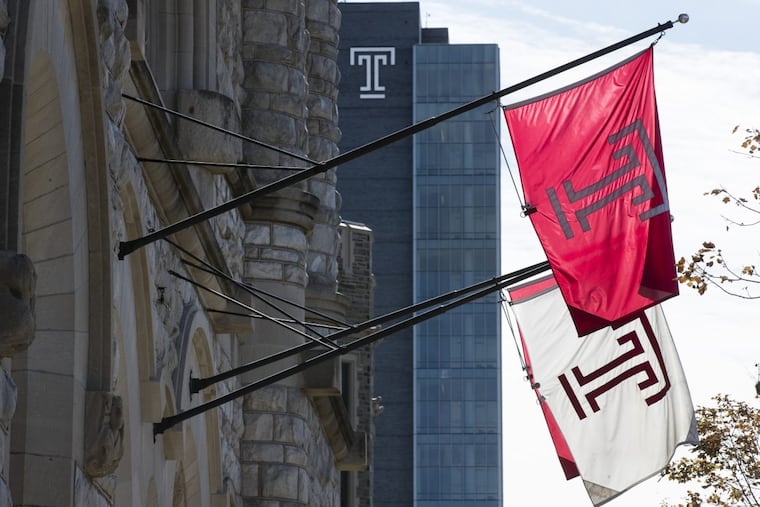Those Temple students who died of overdoses were just like me | Perspective
Colleges need comprehensive recovery programs that provide students with recovery counselors, daily support group meetings, organized social activities, and student recovery housing.

My heart breaks for Michael Paytas' and James Orlando's families. On Nov. 27, Paytas died of accidental drug intoxication at Paley Library. On Dec. 2, Orlando died of an overdose in his off-campus home. Both were students at Temple University. A little more than 10 years ago, I was a student there, too.
I suppose you could say that I'm in a unique position: I graduated from Temple in 2007, and I now work there as an assistant professor of journalism. I also teach a course on addiction reporting and advise a collegiate recovery student group, which is just now getting off the ground. Most importantly though, I'm in recovery, which means that for nearly five years, I haven't had a drink or a drug.
When I first set foot as an undergrad on Temple's campus, it took me less than 12 hours to black out from alcohol and other drugs. Blackouts became part of my weekly and sometimes daily life as a student. At just 18 years old, I'd buy three Hurricane forties from the corner store at Ninth and Diamond. Then I'd head to my dorm, throw them back, and ingest any other drugs I could find.
While I was a student, I was hospitalized for alcohol poisoning three times — twice in Philadelphia and once in New York. I was once punished by the university after one of the resident assistants found me smoking a joint out my dorm window. She gave a deadline by which I had to complete a one-day class on the effects of drug and alcohol at Tuttleman Counseling. On deadline night, I showed up at the resident director's door with my certificate of completion while I was in a blackout. After that, she left me alone.
That was just the beginning of my struggle with drugs and alcohol, which went on for 11 years. Finally, at 29, I entered what I know today as recovery. Had I been a college student during the heroin and fentanyl crisis — the epicenter of which is a short walk from campus — I'm convinced I would not be alive to be the wife, mother, and educator I am today.
Sometimes, I wonder if I'd have entered recovery sooner if Temple provided a better system to flag and support students like me, who were in the throes of addiction. As a faculty member, I see my past self in students every semester, but unfortunately, there's not much dialogue on campus about how we should handle drunk students in the classroom or those who are nodding out. And for those who do enter treatment while in school here, there isn't much support for them when they return.
Temple, as well as other Philadelphia-area colleges, need comprehensive collegiate recovery services. Schools like Rutgers have robust programs that provide students with recovery counselors, daily support group meetings, organized social activities, and recovery housing. The university should also provide faculty, staff, and peers with an online form to flag students with whom they're concerned. I can think of at least three former Temple students who would have benefited from this – Michael Paytas, James Orlando and me.
Jillian Bauer-Reese is an assistant professor of journalism in the Klein College of Communication at Temple University, where she teaches a course called Solutions Journalism: Covering Addiction. jbr@temple.edu @thesmallpicture